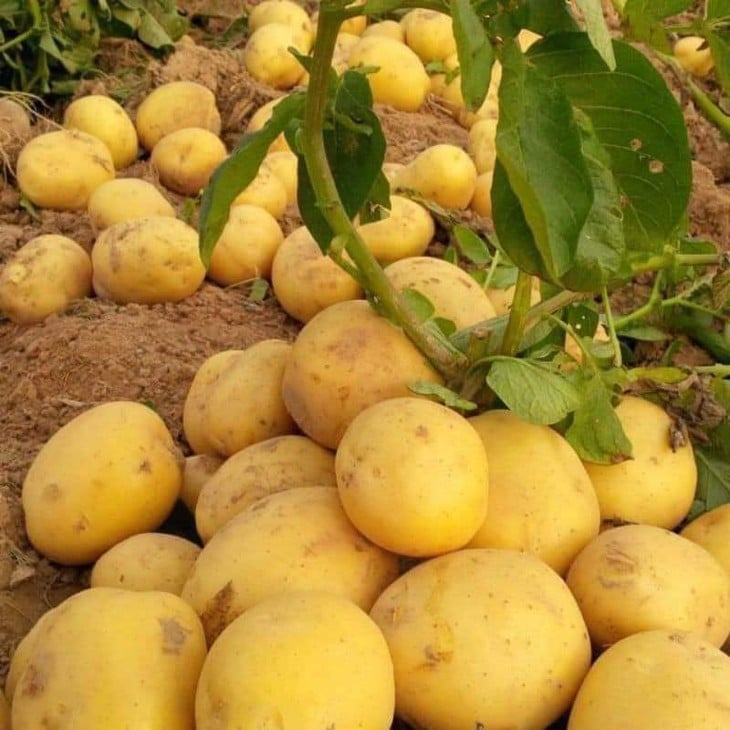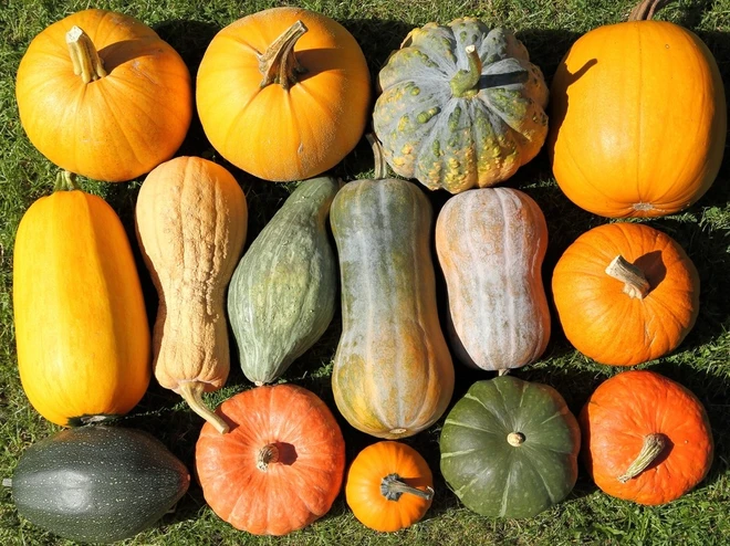
Potatoes are rich in nutrients that are good for health - Illustration photo
Vegetables can be divided into two groups: non-starchy vegetables and starchy vegetables. Starchy vegetables include:
Potato
Like other starchy vegetables, potatoes are a source of complex carbohydrates, containing fiber and other complex starches, which take longer to digest, providing longer-lasting energy than simple carbohydrates.
Complex carbohydrates are less likely to cause blood sugar spikes than simple carbohydrates.
In addition to fiber, potatoes are rich in antioxidants - compounds that help protect cells from damage and prevent disease. Potatoes are also a good source of vitamin K, vitamin C and potassium.
One medium potato (136g) with skin, contains:
Calories: 118
Protein: 2.5g
Fat: 0g
Carbohydrates: 49g
Fiber: 2.7g
Vitamin K: 37.6mcg
Vitamin C: 17.8mg
Potassium: 515mg
Potatoes are higher in carbohydrates than other starchy vegetables, but lower in fiber and protein. People who are watching their carbohydrate intake or blood sugar levels should eat potatoes in smaller portions.
Corn
Corn contains insoluble fiber that aids digestion and helps maintain regular bowel movements. Corn also contains carotenoid antioxidants, which contribute to heart and eye health.
One corn cob provides the following nutritional values: calories: 60; protein 2g; fat 0.5g; carbohydrates: 14g; fiber: 1.8g.
Sweet potato
Sweet potatoes are packed with important nutrients like vitamin A, fiber, and potassium. One sweet potato can provide more than 100% of your daily vitamin A needs. The fiber in sweet potatoes has “prebiotic properties,” meaning it can promote the growth of beneficial bacteria in your gut.
Sweet potatoes are a type of resistant starch, which means the body cannot completely break down and use it for energy. Resistant starch may aid in weight control by increasing the secretion of satiety hormones and reducing fat storage.
It may also improve insulin sensitivity (how well your body responds to insulin), which is beneficial for blood sugar control.
One sweet potato provides the following nutritional values: calories: 112; protein: 2g; fat: 0.1g; carbohydrates: 26.1g; fiber: 3.9g; vitamin A: 922mcg; potassium: 438mg.

Pumpkin contains important substances for immune health - Illustration photo
Pumpkin
Pumpkin is a nutritional powerhouse, lower in calories and carbohydrates than other starchy vegetables, but rich in potassium and vitamins A and C, which have antioxidant properties and support immune health.
One serving of mashed pumpkin provides the following nutritional values: calories: 49; protein: 1.8g; fat: 0.2g; carbohydrates: 12g; fiber: 2.7g; vitamin A: 706mcg; vitamin C: 11.5mg; potassium: 564mg.
Golden radish
Parsnips are root vegetables that are rich in vitamin C, potassium, magnesium, and folate. They are also high in fiber, making them a good choice for blood sugar control.
One medium-sized (160g) cooked parsnip provides: calories: 114; protein: 2.1g; fat: 0.5g; carbohydrates: 27.2g; fiber: 5.8g; vitamin C: 20.8mg; folate: 92.8mcg; potassium: 587mg; magnesium: 46.4mg.
Starchy vegetables contain more carbohydrates and calories than non-starchy vegetables. However, they are a good source of fiber, antioxidants, and other health-promoting nutrients. Eating starchy vegetables may help support blood sugar control.
Both starchy and non-starchy vegetables can be part of a balanced diet. It's important to eat them in moderation, especially if you have diabetes or are on a low-carb diet.
Source: https://tuoitre.vn/nhung-loai-rau-chua-tinh-bot-co-loi-cho-suc-khoe-20250603144357375.htm

































































































Comment (0)